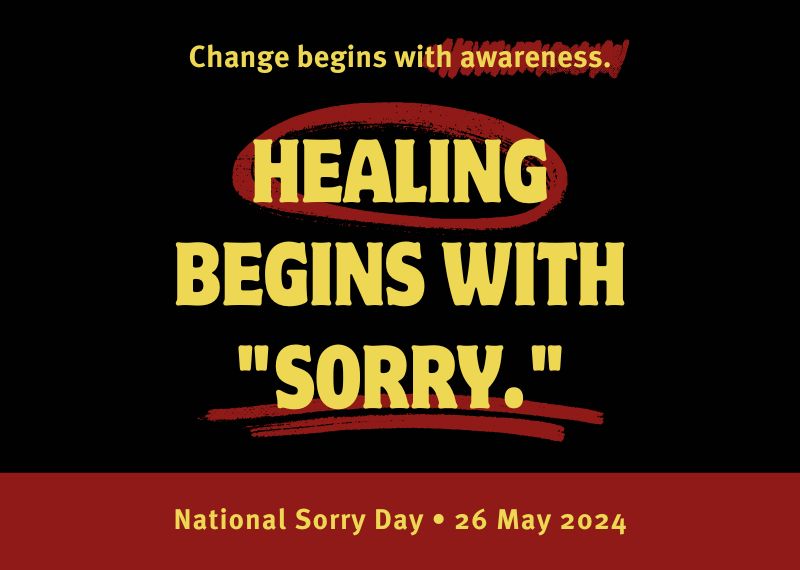I am sorry
28 May 2024Our colleague was recently given some family memorabilia and discovered what the world looked like back in mid-1800s in northern NSW. This National Reconciliation Week, read their reflection on what it means to be part of the colonisation of this country.
My great grandfather was born in 1860 in Cundletown, near Taree in NSW, where the landscape was peppered with rivers and tributaries, including the mighty Manning River, which was handed to my father as his middle name (I gave my son the same middle name). He was a bootmaker, a trade he learnt from his father. He had eight children, one of them being my grandfather. He also wrote poetry – that old-fashioned Australian sort of poetry where everything rhymed – bush poetry, really. He also wrote for the local papers under different pseudonyms including “The Sparrow” and “Hawkeye” and had a bridge named after him. He was a figure of family pride when I was growing up – the great patriarch, a writer, a prodigious producer of children, many of whom went on to illustrious careers.
Two years ago I was at my parents' house, and Dad gave me a whole bunch of family memorabilia. Among the photos and papers was a piece written by Hawkeye called “Aboriginalities” – a long, strangely cobbled together piece that seems to string a number of different stories together as one. Near the beginning of the article, it describes how as a young boy he had attended a corroboree in Port Macquarie that involved between 400 and 500 Aboriginal people and how he had asked one man the meaning of some of the dances. He goes on to describe some of the beliefs and traditional practices of the local tribes and speaks with admiration about their approach to cooking and hunting: “the denizens of the wilderness, in cooking, display considerable ingenuity”.
Don’t get me wrong – it’s a shocking read, littered with derogatory terms that would have been acceptable at the time. Describing things in a way that view Aboriginal people as lesser, as godless and superstitious. Seeing the world through the eyes of the colonisers is truly a strange and terrible insight. At one point we get this:
Great efforts have been made in Australia – both in zeal and money – to civilize our dusky brethren; but they have all been met with signal failures all along the line. No matter how young they were taken, or how long they were kept, or how kindly they were treated, they would eventually return to their tribe. In the earlier days, quite a number have been taken clean away from their old environments to England where they received a thorough education and training, and were then sent back to Australia. The expectation was that the education and travel would have a beneficial effect upon their future. But, alas! How soon were the hopes of their benefactors cast to the four winds of heaven. No sooner were the Aboriginals shipped back – educated and refined – than they relapsed into their former state of primitive man.
So the family pride I had in my ancestor is tainted now, and has to be understood by putting on the goggles of history. And even then, it’s a bitter pill. Why was there nobody to take a stand for Aboriginal and Torres Strait Islander People? Why was there nobody to see those cultural expressions and gatherings as something that needed to be understood and preserved, rather than destroyed?
My family has been part of the colonisation of Australia. Part of the efforts to kill the culture and existence of the original population. Shame job. And only now we mourn what has been lost, what we did to destroy language, connection to country, traditional practices and ceremonies, and so many lives lost to the war that was fought in this country.
I am sorry.
By a QFCC staff member

